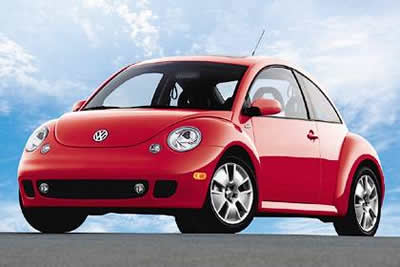(Not) The Last word on Residential Parking Permits, Fees, and Policies
 The Smart Car is 98.5 inches wide. Image from Wikipedia.
The Smart Car is 98.5 inches wide. Image from Wikipedia.There's a discussion about this on the Columbia_heights email list and of course, I've been writing about it. Here's the latest--
When I was in college I tried to create the "Student center for research and evaluation" to do applied research oriented to improving things on campus. It's called action or participatory research. They have such a center at U Mass. Of course, even though the student body voted in favor of adding to the student fee to fund it, the Regents tabled it indefinitely...
Anyway, we don't do this kind of research in DC, in terms of developing and improving municipal policies, and we should.
In my previous emails I didn't articulate an observation which I believe to be true, but I haven't researched it*. That is (1) DC residents have been buying larger vehicles, compared to the types of the vehicles purchased in the past (i.e., replacing Ford Tauruses, although people here buy more "foreign" cars, with SUVS etc.)--this is partly a function of gas prices and partly a function of other trends, and (2) that the average DC household owns more cars than it used to (the average DC household purchases more cars today than before). (*However, I am empirically inclined and I do have pretty good powers of observation.)
This is abetted by people moving to the city to partake of the urban experience. However, many of these new residents continue to hold jobs in the suburbs and primarily commute to such jobs via a personally-driven automobile (remember the posts in March about getting to Chinatown quickly, the posts which generated the "Dr. Transit" persona in my blog?)
Both changes reduce the inventory of available parking spaces on the city's streets. And these types of behaviors are encouraged by residential parking policies unlinked to valuing parking spaces at an amount high enough to discourage unwanted behaviors. Not adding a further increase to the cost of the permit for larger vehicles is another problem...
 This small car is more than 13 feet wide. A typical DC rowhouse in many neighborhoods is less than 18 feet wide.
This small car is more than 13 feet wide. A typical DC rowhouse in many neighborhoods is less than 18 feet wide.For example, in my neighborhood the average row house is 15-18 feet wide. The street space in front of it can accomodate at best 1.5 cars. (Not that people are entitled to the space on the street in front of their houses, but that's another argument.) Parking restrictions at intersections, by fire hydrants, etc. reduce this inventory from the theoretical maximum.
Another way to think about it is that the average square is 270 feet by 270 feet. Curb cuts, alleys, bus stops, etc. subtract available street parking space. If even a small car like the Chevy Aero is 12.5 feet long ... well, you see the impact of these simple calculations.
Mini -- 143 inches long
VW Beetle -- 161 inches
1995 Geo Metro -- 164 inches
2004 BMW X3 -- 179.7 inches
Chevy Suburban -- 219.3 inches
If every household has two cars, and if the typically owned car is longer and wider (i.e., it's damn hard getting into spaces bracketed by big SUVs), you can see that this problem is insolvable, especially when adding multi-unit dwellings to the mix.
More residents doesn't build more parking spaces on the streets... But again, I don't think the solution is to build parking garages for these people, it's to do a wide variety of other things--from building great transit systems to attracting more jobs back to the city, etc.
The "people not from DC are parking on our streets" argument is completely separate and different and needs to be evaluated and addressed with different policies and programs. E.g., if Mark Eckenwiler is right (see Examiner) that people misuse residential parking permits, that needs to be addressed in a manner which truly addresses that problem.
But challenging permit fee increases with arguments about non-residential parking in my opinion is designed to deliberately muddy the waters (obfuscate) the issues.
_______
Also see "Thinking Small" from Forbes, which starts by saying: "In America--the land of super-sized products--cars like the Chevrolet Cavalier, the Audi A4, the BMW 325 and the Ford Focus are considered small. These vehicles range in length from 168 inches to 183 inches."
Index Keywords: parking



0 Comments:
Post a Comment
<< Home